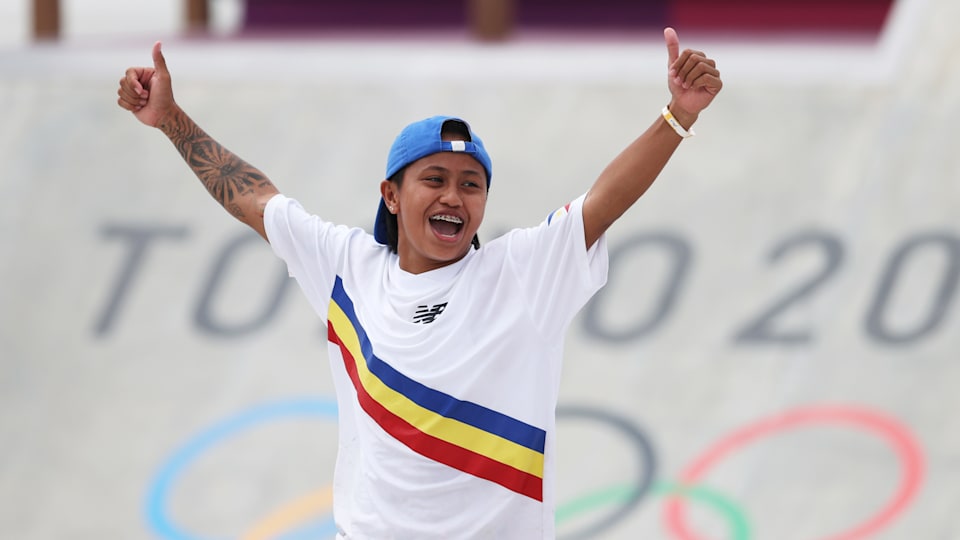How Margielyn Didal is shaping the future of skateboarding in the Philippines
From supporting her family by selling street food to representing the Philippines at the Olympics Games, Margie Didal’s story has become a source of inspiration for aspiring young Filipinos across the archipelago. Find out how her legacy is already taking shape.

Margielyn Didal could never have imagined the future she would come to have when she stepped on a skateboard over 10 years ago.
Just 12 when she first tried riding after seeing skaters in the street for the first time, before that serendipitous moment, the young Filipina’s life was devoted to doing what she could to support her seven-person family make ends meet.
When she discovered soon after starting to skate that she could earn money from winning contests, Didal committed to doing the unprecedented in her country: try to forge a career out of skating.
The journey on the way up wasn’t always easy for Didal. With very little skate infrastructure in her home city of Cebu, she had to do the most of what she had to hone her skills and when a fractured collarbone sidelined her for three months, the withdrawal of sponsors left her considering giving up altogether.
Today, thanks to her perseverance, skill and infectious never-say-die energy, Didal is living a life wholly set apart from those early years and it’s all down to what she has managed to achieve on a skateboard.
From first capturing national notoriety after winning gold in the street contest at the 2018 Asian Games to representing her country at the Toyko 2020 Olympic Games, Didal’s story, unlike any previously seen in the Philippines, is one that has touched the masses. And now, those in the country, want to use it to bring about change for the better.
Margie Didal: An 'inspiration to every Filipino'
“[Margie Didal]’s an inspiration to every Filipino, especially the younger ones,” William Vincent “Vinny” Marcos, son of President Ferdinand Marcos Jr. said to Olympics.com from WST Street Skateboarding Rome 2023 where he was supporting Skate Pilipinas at the Olympic qualifier. “She’s really up there and she really proved that you can make a life skateboarding.”
Having joined Didal at skate clinics across the Philippines and seen for himself what she has been able to achieve with limited resources, Marcos believes that with enough investment other young aspiring skaters from the country can access the same level of joy and success in the sport as the Olympian.
It’s why, he says, he is personally working on taking it to the next level.
“I’ve been trying to give out boards and try and push skateboarding,” Marcos, an amateur skater and surfer, explained. “Get people started as kids so they get really good when they’re older and just get people out of the house.”
The biggest area for growth for skateboarding in the Philippines, according to Marcos, is around developing dedicated space for skaters to use: “We don’t really have that many street spots and to be honest and we don’t have that many skateparks,” the Filipino said, painting a picture of the current state of the skate scene in the country.
“We’re trying to build a lot of skateparks in the Philippines at the moment so that we can have competitive-level parks and competitions; that’s really my dream.”
Having himself discovered the sport in his late teens after being inspired to try it by a friend on a penny board, Marcos says the self-driven nature of skateboarding, as well as the “warm vibe” in the community, are among the things other Filipinos can find in skating.
He also shared that he is optimistic that one day the country might become a powerhouse in the discipline with more people like Didal making it to the elite level.
“I am so impressed by the results of our athletes considering we don’t have proper facilities and proper skate parks. I really think the Philippines can get up there.”
